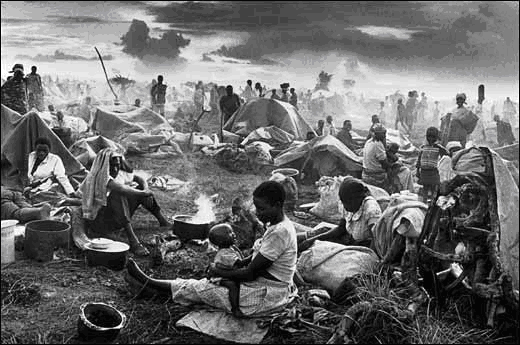
Pochi giorni fa il governo ruandese ha completato un progetto di legge per l'abolizione della pena di morte, che presto sarà sottoposto al parlamento. La notizia è ancora più importante, se si considera il passato del Ruanda e tutte le polemiche sorte tra il governo di Kigali e il Tribunale di Arusha (quello che giudica i responsabili del genocidio) in merito alla pena di morte. Il Ruanda infatti reclamava il diritto di giudicare in patria i responsabili del genocidio, ma una delle ragioni del rifiuto opposto dal Tribunale internazionale a questa richiesta era stata la considerazione che, mentre lo statuto del Tribunale non prevedeva la pena di morte, l'ordinamento giudiziario ruandese l'accettava ancora.
The New Times (Kigali)
NEWSJanuary 19, 2007
By Robert Mukombozi
After prolonged consultations with different stakeholders in the country, the Cabinet has finally adopted the draft law for the abolition of the death penalty. The decision was adopted during a Cabinet Meeting chaired by President Paul Kagame at Village Urugwiro on January 17. Under minute five of the resolutions, the Cabinet supported the abolition of capital punishment to allow for trial and subsequent application of alternative penalties for capital offenders.
‘We (cabinet) have adopted the draft law scrapping the death penalty,’ the Information Minister, Prof. Laurent Nkusi, said in a statement. Many countries don’t extradite criminal suspects to states which still uphold the death penalty.
Contacted over the development the justice minister, Tharcisse Karugarama said the initiative is a milestone in the country’s judicial system.
“This is a significant stride made in the government’s efforts to scrap the death penalty,” he said in a telephone yesterday, and added that the draft law is to be presented to Parliament for approval. On when it would be forwarded to Parliament, Karugarama said the date will be decided by the Prime Minister.In an earlier interview the Prosecutor General Martin Ngoga had said that the scrapping of death penalty would encourage the extradition and transfer of genocide suspects from the ICTR to face justice in Rwanda. The Tribunal, which is set to complete its mandate next year, has so far secured only twenty five convictions and three acquittals, yet there are about 100 fugitives who have so far eluded the law.
Meanwhile, the Wednesday meeting also endorsed the conditional release of prisoners under the President’s Prerogative of Mercy of January 1, 2003.
According to the Cabinet statement, some of those to be released are civilians and soldiers who were not jailed for capital offences like murder, aggravated robbery, rape and embezzlement.
Nessun commento:
Posta un commento